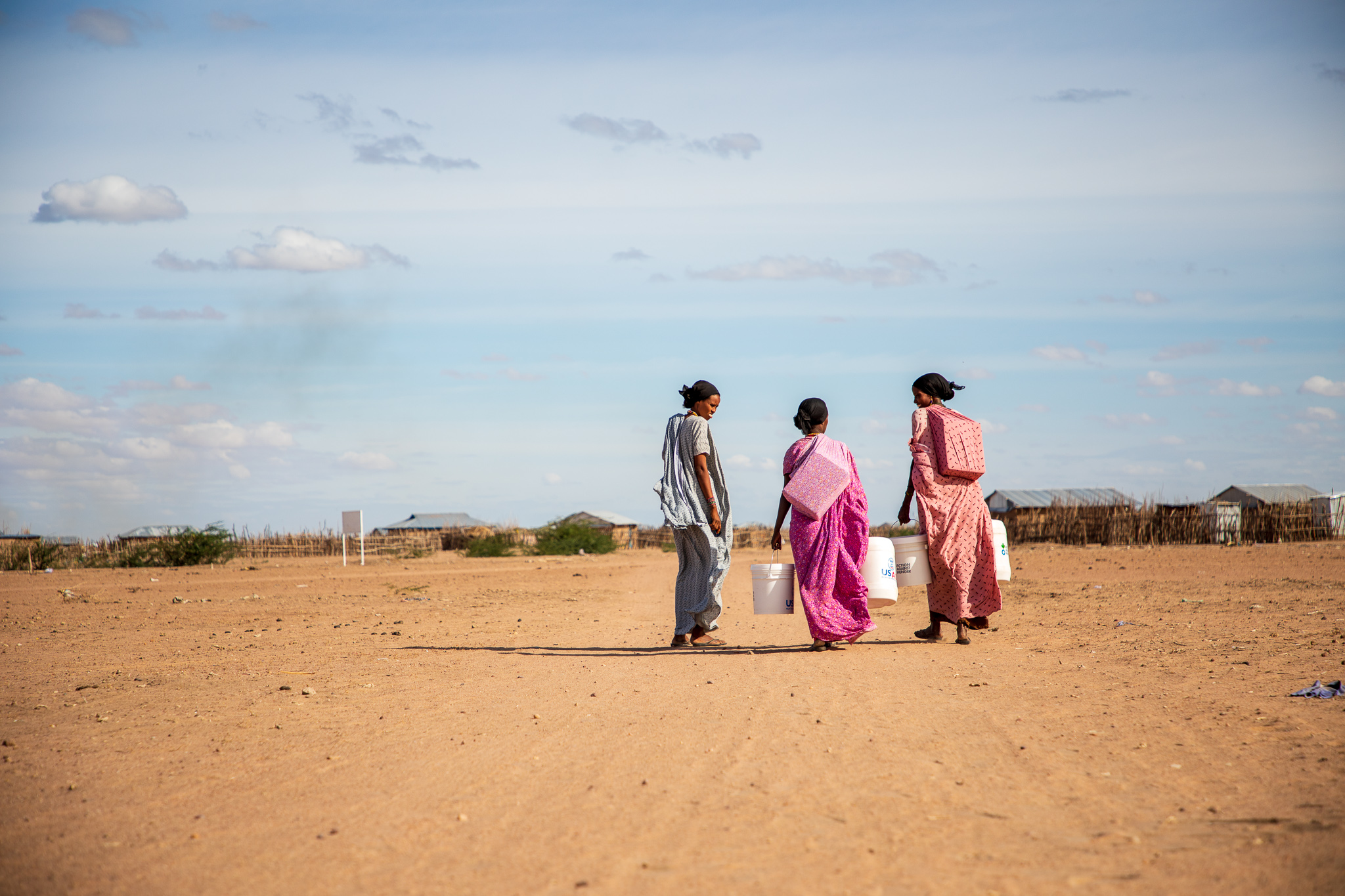In partnership with ODI and the Center for Climate and Security, with financial support from the United States Agency for International Development
Background
Communities affected by fragility, conflict and violence face overlapping risks, including heightened vulnerability to climate change and food insecurity. Fragility and conflict reduce people’s capacities to cope with shocks and stressors, and to adapt to climate change. Climate shocks and stressors further erode livelihoods, assets and wellbeing at the individual to community scales, and place further pressure on fragile infrastructure, basic services and governance systems at subnational to national scales.
The COP28 Declaration on Climate, Relief, Recovery and Peace (henceforth ‘the Declaration’) is a call to change the way ‘governments, international and regional organizations, international and regional financial institutions, philanthropic and private sector entities, and organizations from the climate, environment, development, humanitarian, and peace sectors’ work in fragile and conflict-affected situations (FCAS). The Declaration underpins the urgency to explore how climate, development, humanitarian, DRR and peace actors, together with governments, international and regional organizations and financial institutions, can collectively move beyond a crisis-based approach to supporting climate adaptation and peace outcomes. This requires a shift to linking and sequencing short- and long-term investments to build forward better, including by providing earlier and more timely support, to yield cumulative increases in the adaptive capacity, recovery and resilience of not only people and communities, but also the institutions and systems on which overall resilience is built. Greater cooperation among actors is critical to scale, link and sequence interventions, and accelerate and finance resilience and adaptation efforts commensurate with the scale of the challenge faced in FCAS.
In partnership with COP28, ODI and the Center for Climate and Security, in conjunction with Wilton Park, hosted a dialogue between humanitarian, climate, disaster risk management (DRM)[1], peace and development actors to discuss lessons learned; to identify gaps, avenues for financing and good practice in areas such as coordination, communication, cooperation on intervention objectives, design and implementation; and discuss how to bridge the silos between these communities. The dialogue built on a previous discussion hosted by the UK Foreign, Commonwealth and Development Office, in conjunction with Wilton Park, in July 2023 on the role of international climate adaptation finance in addressing the underlying climate-related drivers of humanitarian need.
A key focus of the dialogue was on how to scale up, link and sequence interventions to bridge the silos between these communities, and accelerate and finance resilience and climate adaptation efforts to deliver on the Declaration. This dialogue was the first multi-stakeholder meeting on the Declaration to inform the route towards COP29 and beyond.
Although government representatives from various country signatories, including FCAS, were invited, only representatives from Somalia were able to attend for various reasons. Their perspectives and priorities are therefore not sufficiently represented in this event report. Government signatories to the Declaration must be included in further engagement and policy moments around the Declaration, to ensure that actions taken in the name of the Declaration are led by and supportive of Parties (countries) to the Paris Agreement and the UNFCCC, as appropriate, while furthering cooperation efforts under non-climate forums. The dialogue was conducted through guided working sessions, individual reflective commentary and facilitated plenary discussion. Key takeaway points, proposed actions and next steps are summarised in this event report.
[1] This report refers to both disaster risk reduction (DRR) and disaster risk management (DRM). DRR is the overall aim of the sector, which is achieved through DRM.
